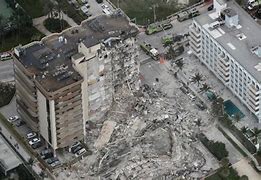Below is a review of the posts (on Facebook, LinkedIn, and Twitter) from the past week. You can check out the full posts by clicking on the links.

In the post on Sunday 5/22/2022 we saw that a new report fuels contractor labor rights suit against Nintendo of America. Nintendo is facing legal claims filed by a former contractor with the National Labor Relations Board (NLRB) for allegedly violating workers’ rights in regard to unionizing. And contrary to Nintendo’s statement denying knowledge of intents to unionize, a new report has multiple other former employees stating otherwise. The part-time employee who the company said was fired for “the disclosure of confidential information and for no other reason” was actually terminated mid-contract – the timing and what preceded it are discussed in the post. The same sources (in the report) don’t think that is the whole story; they say that the social media post that allegedly broke an NDA was “extremely vague” and would normally constitute a warning based on previous disciplinary actions. That is why they think the firing was otherwise – as noted in the post. There are statements from 10 current and former employees who have worked at Nintendo’s headquarters in Redmond, Washington; their common sentiment as to how the company treats contractors is noted in the post. They say that Nintendo operates on a two-tiered system for temporary employees that have them cycled out as alleged in the suit and noted in the post. QA testers also allegedly make as little as $16 an hour and there are reportedly extremely limited opportunities to reach full-time positions or even receive recognition when working in a contract role. How some of the employees view that system is in the post – and it is even if some of those contractors are working with full-time responsibilities. Contract workers said they are expected to perform at the same level as their full-time, “red badge” co-workers, allegedly including working necessary overtime for certain projects, resulting in crunch on several products, but what they get in return is … listed in the post.
TAKEAWAY: While this suit involves the NLRB, similar facts might apply under other non-discrimination laws in other scenarios. Be careful.

The post on Monday 5/23/2022 was about remote work accommodations in the post-COVID era. While many employees want to continue to work-from-home options as a preference, others may ask to work remotely for more specific reasons such as those noted in the post. Recent federal court cases addressing COVID-19 workplace vaccine mandates suggest that employers may be required to grant more employees’ requests in the post-pandemic era. For example, in a case from Massachusetts, a physician, two registered nurses, a technologist and a technical supervisor in radiology, a medical imaging clinical instructor, an electrician, and a “manager of information desks,” filed suit after their employer, a healthcare provider, denied their requests for religious and medical exemption. Another case from Colorado dealt with denial of a request for a religious exemption. In both late-2021 cases the courts ruled that the employer likely did not violate federal laws prohibiting discrimination in employment based on religion or disability when they denied the exemption requests. On what the courts based their decisions is explained in the post. While the decisions favored the employers and the focus on COVID-19 vaccination requirements, they also provide important hints as to how the pandemic experiment in remote work has likely changed employment discrimination law in ways that will outlast the pandemic. In the Massachusetts case, for example, the court noted that the employees who filed suit had not provided evidence that their particular positions could be performed remotely. What else that court noted is in the post. Another case from Alabama involved a federal aerospace contractor which denied COVID-19 vaccine exemption requests from several employees; the Court held that the employer had legally justified its decision (as noted in the post). While it is often recognized that in-person interaction is essential to many positions, employers now will need to acknowledge the pandemic experience with widespread remote work as they consider requests for remote work accommodations going forward, many of which requests are expected to be based on a disability. Why does it make a difference if the request is based on a disability as opposed to religion? See the post. The length of time of the requested accommodation will also be important.
TAKEAWAY: The old days of denying requests for remote working out of hand are over – it must be considered as an accommodation just like other options. Get legal assistance if needed.

The post on Tuesday 5/24/2022 told us another appellate court rejects challenge to vaccine requirement for federal workers. On April 19th a panel of the 4th U.S. Circuit Court of Appeals dismissed a case against the U.S. Department of Defense claiming the COVID-19 vaccine requirement for federal workers is unconstitu-tional. That decision echoed an April 7th judgment by the 5th Circuit overturning a previous injunction against the directive (for the procedural reason noted in the post). Nonetheless, federal employees can request a review of the MSPB’s decisions by a federal appeals court. Both rulings might be appealed to the US Supreme Court. President Biden issued the underlying executive order in September 2021 requiring vaccinations for all executive branch agency employees, unless they qualified for an exemption based on a medical or religious objection. The EO does not apply to employees in the judicial and legislative branches.
TAKEAWAY: Employers – public and private – must all follow the law, but that can include requiring vaccination and not granting requests for exemption. Get legal help in these areas.

The post on Wednesday 5/25/2022 told us a condo group is suing cannabis dispensary parties, including the mayor’s wife. 51-53 14th Street Condominium Association, Inc. filed a 23-page lawsuit against 51-53 14th Street Retail LLC, Exchange Physical Therapy Group, Drew Nussbaum, Jaclyn Fulop, Story Dispensary, Samantha Silva, and Howard Hintz in NJ state court. The suit alleges deceit by the current owners of the commercial unit of an eight-unit condo building to put in a cannabis dispensary while claiming it would be a physical therapy practice. Why the association claims that is a prohibited use is noted in the post. Allegedly one of the owners verbally confirmed on numerous occasions with the prior owner that he intended to move his physical therapy/chiropractic practice to the commercial space. This is not the first time the association made these allegations: see the post. The six-count suit seeks declaratory judgement, injunctive relief, as well as alleging nuisance – use of land interfering with others, common law fraud, civil conspiracy, and corporate veil piercing/alter ego. The relief sought is a declaration that the space can’t be used as a cannabis dispensary and the other things noted in the post.
TAKEAWAY: The Governing Documents – Declaration (CC&R’s), Bylaws and Rules & Regulations govern all units in a condo or homeowners’ association.

The post on Thursday 5/26/2022 told us that the Surfside condo families and survivors reach almost $1B settlement with insurers, others. How the $997 million will be distributed among the families and injured victims, along with attorneys’ fees, has yet to be decided. While the judge still must approve the settlement, that is likely. The money will come from more than 10 sources, including insurers of the security company that was responsible for safety systems at the condo building and will pay the largest share, more than $450 million. Other defendants are noted in the post and include the developers and contractors at 87 Park, the condo next door to the collapsed tower. The plaintiffs had argued that the construction of the adjacent condo in 2016 had contributed to the collapse (how is noted in the post). The 87 Park owners and associated firms have not admitted fault in the case but settled for an undisclosed amount. And an engineering firm for 87 Park? See the post. Two other defendants have also settled recently, including the law firm that advised the Champlain Towers board and the engineering firm hired to inspect the towers shortly before the collapse. How much they will pay and the source of funds are noted in the post. Part of the proceeds from the sale of the property will eventually be added to the settlement, bringing the total to more than $1 billion. There is also a separate settlement in a suit by owners of units in the collapsed Champlain Towers building who lost property and belongings. The amount of that settlement is in the post.
TAKEAWAY: Deferred maintenance can save money but cost lives – know what your Association is or is not doing and whether obligations are being met. Get assistance from a community association lawyer.

The post on Friday 5/27/2022 told us McDonald’s defeats legal challenge from Fight for $15. This has been a decade in the making. In 2012, a political movement called Fight for $15 swept the US, with workers calling for a $15 an hour minimum wage. The union-backed group began filing complaints with the National Labor Relations Board (NLRB) on behalf of McDonald’s franchise workers – the basis of the charges is noted in the post. Then in 2014 the NLRB brought a case against McDonald’s and its many franchisees, trying to expand the circum-stances in which companies could be considered “joint employers” (and what that would lead to is in the post). McDonald’s denied wrongdoing, arguing lack of sufficient control over franchises to be considered a joint employer. In 2019 the NLRB settled and McDonald’s was ordered to pay up to $50,000 to individual workers. But there was no determination on the joint employer issue. Fight for $15 challenged the settlement, and now an appellate court has ruled in McDonald’s favor. The basis of the ruling is in the post.
TAKEAWAY: Remember that a least a portion of the NLRA applies to every workplace – know the law and contact an employment lawyer before questions arise.

Finally, in the post yesterday 5/28/2022 we saw that a judge who fired employee for not getting vaccinated did not abuse power. A bankruptcy judge who fired an employee who was denied a religious exemption from a mandatory COVID-19 vaccination requirement did not engage in discrimination or an abuse of power, a federal appeals court judge ruled. Chief Judge Michael Chagares of the Third Circuit (which governs in PA) dismissed a complaint the ex-employee filed with the Judicial Council in a rare judicial misconduct case over a federal court employee vaccine requirement. The decision is dated Feb. 22 but was only recently released. The ruling did not identify the complainant, judge or even court to which it pertains. The background: federal district and bankruptcy courts in Delaware and New Jersey, which are both in the 3rd Circuit, are among those within the broader federal judiciary that have mandated court staff get vaccinated. The ex-employee accused the unnamed bankruptcy judge of discriminating against her based on her religious beliefs by terminating her after denying her application for a religious exemption from a court vaccine policy. What she alleged in support of her exemption request is in the post. Chagares ruled that the ex-employee was essentially seeking to collaterally attack the judge’s decisions to terminate her and not grant a religious accommodation, something she could not do in a misconduct case. Even if she could, Chagares found no violation for the reasons set forth in the post.
TAKEAWAY: Requests for vaccine exemption and accommodation come in all workplaces, including judicial. Know the law and how it applies in

 York, Pennsylvania 17403
York, Pennsylvania 17403